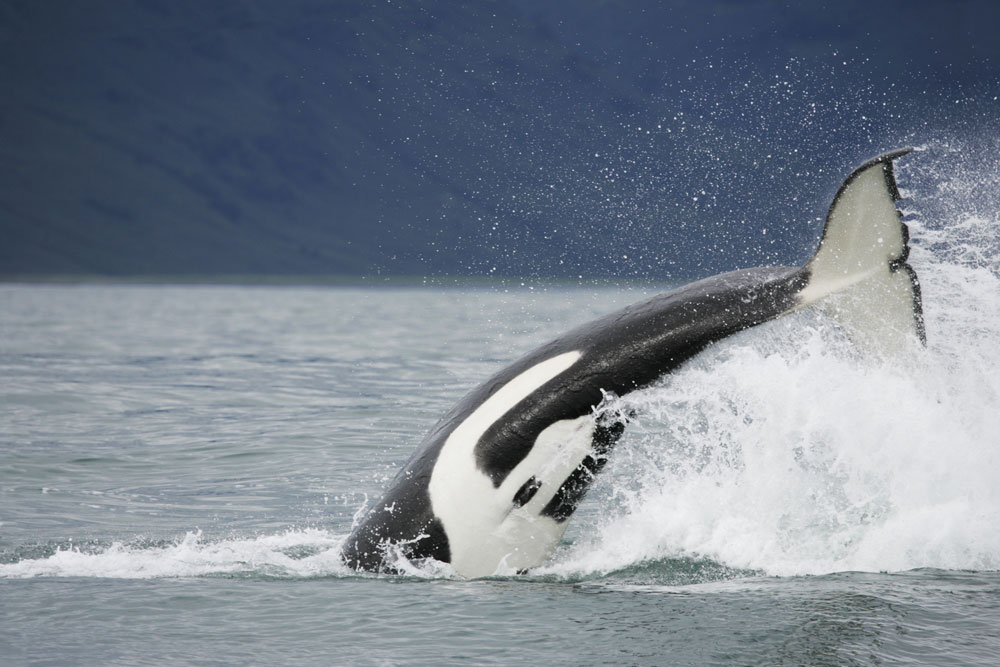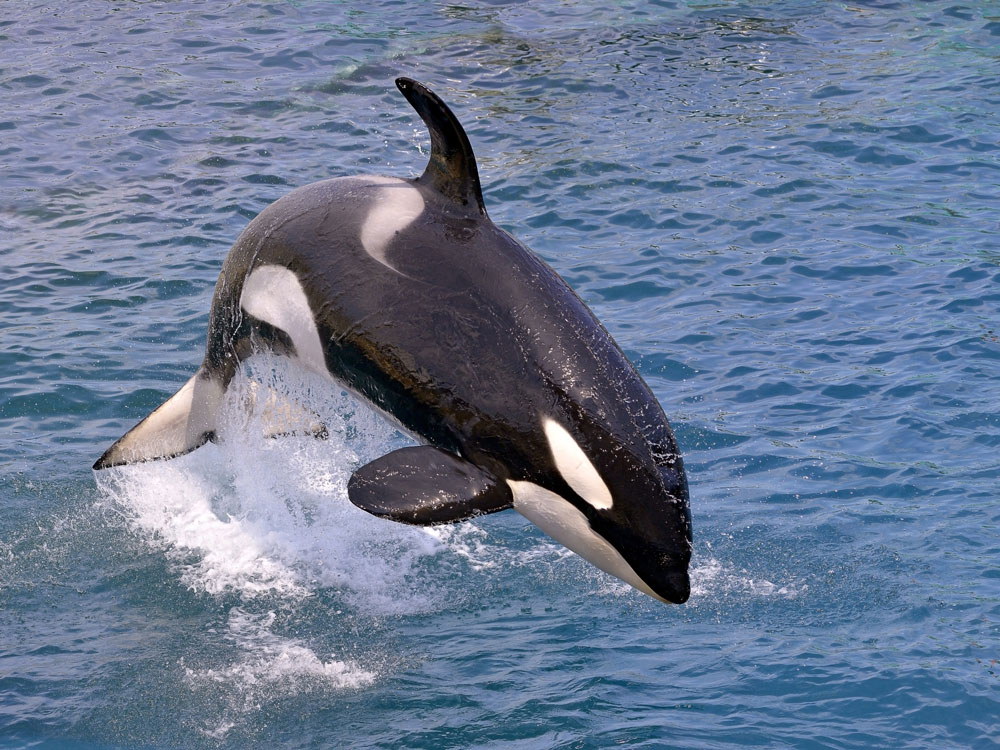
Orca Whales
Orcas are highly intelligent and social animals, traveling in groups called pods. Their fierce predatory style won them the nickname of “killer whale” in spite of the fact that orcas, both in the wild and in captivity, show incredible curiosity, awareness and gentleness toward people. Orcas have no natural predators except for humans.
Whaling, aquarium capture, pollution and the reduction of food supply have taken a toll on the endangered, Salmon-eating Southern Resident Killer Whales in particular. These species of orca whales mostly feed on Chinook-species salmon and have struggled due to a lack of sufficient food supply in the Salish Sea. Meanwhile, other species of orca whales such as the Mammal-eating “Biggs” killer whales are thriving in population. Although orcas are found in all oceans and most seas they prefer colder waters and are more predominant in Antarctica.

Puget Sound Orca Whales
In the waters of Puget Sound and the San Juan Islands there are two different types of orca whales: mammal-eating orcas the Chinook salmon- eating orcas called Southern Resident Killer Whales (SRKW). Mammal-eating orcas are most commonly seen in the area, as their population is thriving with ample food supply and the ability to travel long distances to hunt.
Bigg’s killer whales in the Puget Sound travel between Alaska and the mid-Californian coast in small pods, usually between one and seven whales. They feed primarily on marine mammals such as seals and sea lions but will also form large temporary pods in order to attack other species of whales like the gray or minke. There is no socializing, interaction or breeding between mammal-eating and salmon-eating orcas. The salmon-eating SRKW orca whales exist and travel as members of three distinct pods: J, K and L pods. The species is currently endangered, primarily due to lack of their primary food source in the Salish Sea: Chinook salmon.. As worldwide leaders in whale protection, research, conservation and education, we encourage you to visit the following organizations and consider support of local whale and sealife conservation efforts to protect and help restore salmon habitats for SRKW.
Save on the Only Wildlife and Whale Watching Tour Leaving from Seattle
Enjoy an epic and educational day exploring the scenic Pacific Northwest with the ONLY half-day Seattle-based Wildlife & Whale Watching Tour! Tickets from $110. Parking included for a limited time!